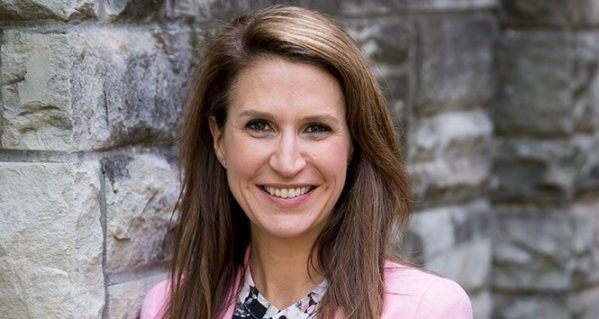 Political dynasties make me uneasy. Oh, I know reasonable arguments can be made for them. And I’m not saying this unease would determine my vote. Still, the reservation lingers.
Political dynasties make me uneasy. Oh, I know reasonable arguments can be made for them. And I’m not saying this unease would determine my vote. Still, the reservation lingers.
The subject came to mind when Caroline Mulroney announced her candidacy for leadership of the Ontario Progressive Conservatives.
A political neophyte who’s never held elected office, Mulroney is the daughter of former Canadian prime minister Brian Mulroney. And without that surname, there’s no way she’d be considered a serious candidate at this point in her career.
First, though, let me acknowledge the logical case for dynasties.
By now, most of us probably accept that there’s a reasonable degree of heritability in personal attributes. So if your parent had what it took to become prime minister or president, there’s a good chance you might have some of the same stuff.
| RELATED CONTENT |
| Hereditary empires and the struggle with modernity By Pat Murphy |
| The rise and fall of the Romanovs By Pat Murphy |
| A love letter from Canadian LGBQT artist to the Queen By Owen Grant Innes |
Then there’s the matter of background. Growing up in a politically successful household provides learning opportunities. If a political career catches your fancy, your preparedness won’t start from scratch.
Of course, political dynasties aren’t a new thing.
The Pitt family, father and son both named William, were important players in 18th century Britain.
And the early United States had the Adams family, to which history has tended to be kind.
John Adams (1735-1826) was a key player in the American Revolution, a signatory of the Declaration of Independence, the first vice-president of the United States and the second president. Irritable, even cantankerous, Adams was described as having “a penchant for doing the right thing, most especially when it made him unpopular.”
His son, John Quincy Adams (1767-1848), was also distinguished. After a long diplomatic career culminating in two productive terms as secretary of state, he became the sixth president by defeating Andrew Jackson in the contentious and disputed election of 1824.
And when Jackson had his revenge four years later, Adams didn’t go quietly into the night. From 1831 until his death in 1848, he served in the House of Representatives, where he worked to prevent the expansion of slavery. In 1841, he was part of the legal team that successfully argued the Supreme Court case for the escaped Amistad slaves.
The presidential Adams clan may have lacked the common touch and been described as “self-appreciative” of their own moral and intellectual attributes. But it’s difficult to credibly deny their talents. If all putative dynasties came up to their level, my reservations would disappear.
Alas, they don’t.
The recent North American fashion for dynasties can be traced to the 1960s emergence of the Kennedys. At Kennedy-mania’s heady peak, it wasn’t unusual to hear political aficionados talk of eight years of John F. Kennedy being followed by eight years of younger brother Bobby. And after that, perhaps the family’s youngest son, Teddy, would have acquired sufficient gravitas to step in.
Because assassinations and scandal combined to abort the Kennedy dynasty, it’s difficult to render any definitive judgment on what might have been. And the influence of family money notwithstanding, John F. Kennedy’s ascent was largely down to his own qualities.
But it was certainly the family name – and the family name only – that launched Teddy’s career in 1962. To quote a disgruntled Democratic rival: “If it was Edward Moore, your candidacy would be a joke, but nobody’s laughing because his name is not Edward Moore. It’s Edward Moore Kennedy.”
The reliance on name rather than personal accomplishment got worse with subsequent American dynasties.
While I’ve never subscribed to the demonization of ex-president George W. Bush, son of former president George H.W. Bush, can anyone seriously argue that family name wasn’t what propelled him to the governor’s office in Texas and subsequently to the 2000 Republican presidential nomination?
As for brother Jeb Bush, even $100 million couldn’t get him past the early stages of the 2016 race. In the end, his contribution came down to being the perfect establishment foil for Donald Trump and a blocker for Marco Rubio.
And let’s not forget Hillary Clinton, wife of former president Bill Clinton. Pundits waxed eloquently on her voluminous qualifications but actual accomplishments are thin on the ground.
For instance, did her four-year sojourn as secretary of state leave the Middle East in better shape than she found it? And how did her “reset” of relations with Russia work out?
So colour me skeptical on the subject of political dynasties.
Troy Media columnist Pat Murphy casts a history buff’s eye at the goings-on in our world. Never cynical – well, perhaps just a little bit.
The views, opinions and positions expressed by columnists and contributors are the author’s alone. They do not inherently or expressly reflect the views, opinions and/or positions of our publication.

